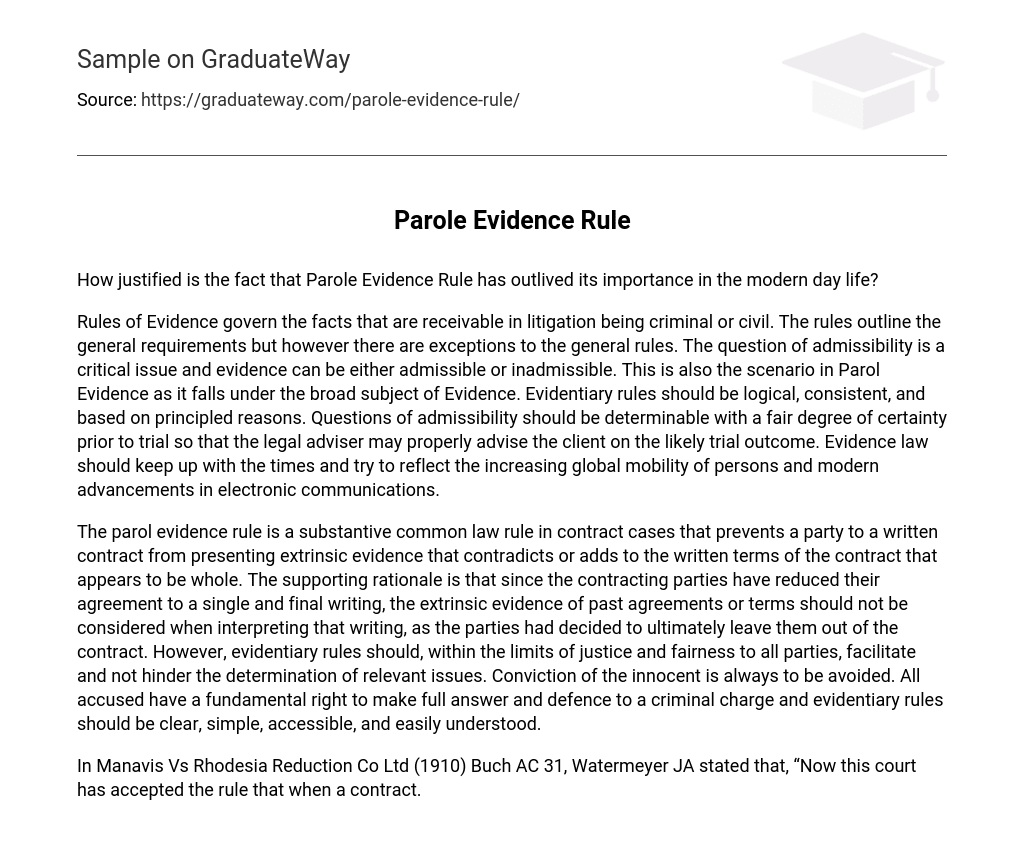Is it justified that the Parole Evidence Rule has lost its significance in contemporary society?
The Rules of Evidence regulate the facts allowed in both criminal and civil litigation, establishing general requirements with exceptions. Admissibility is crucial as evidence can be deemed admissible or inadmissible, including Parol Evidence which falls under Evidence. The rules governing evidence should be logical, consistent, and principled. Determining admissibility before trial allows legal advisors to guide clients on expected outcomes. Additionally, evidence law should adapt to current times and recognize advancements in electronic communications amidst increasing global mobility.
The parol evidence rule, a substantive common law rule in contract cases, bars a party from introducing extrinsic evidence that contradicts or adds to the written terms of a contract. This rule ensures the finality and completeness of the contract, as parties deliberately exclude past agreements and terms by reducing their agreement to writing. Despite this aim, evidentiary rules should facilitate determining relevant issues while upholding justice and fairness for all parties involved. It is vital to prevent wrongful convictions and ensure accused individuals can fully respond and defend themselves against criminal charges. Therefore, evidentiary rules must be clear, simple, accessible, and easily understandable.
In the case of Manavis Vs Rhodesia Reduction Co Ltd (1910) Buch AC 31, Watermeyer JA declared, “This court has now acknowledged the principle that when a contract is…





